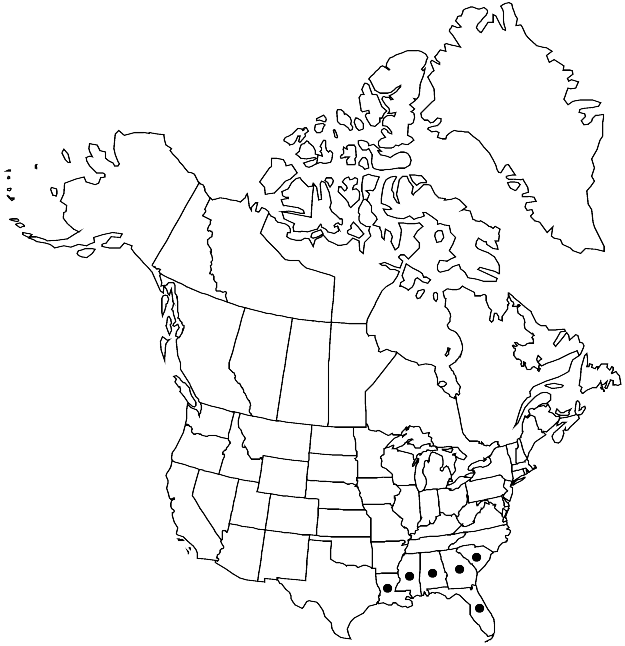Rosulabryum pseudocapillare
Biodivers. Poland 3: 162. 2003.
Plants small, green to red-green. Stems 0.5–2 cm, fertile stems singly rosulate, rare, innovations elongate, evenly foliate. Leaves of main rosette and innovations somewhat differentiated; rosette leaves somewhat irregularly twisted to contorted when dry, erect-spreading when moist, ovate to obovate, flat, 0.6–2 mm; base not decurrent; margins recurved to mid leaf, entire or weakly serrulate distally, limbidium absent or weak, of 1 row of cells; apex acute; costa not reaching apex to excurrent, awn pigmented or hyaline, slender, irregularly twisted when dry; proximal laminal cells long-rectangular; medial and distal cells long-rhomboidal, 12–18 µm wide, 3–5: 1, walls thin, not porose; innovation leaves redbrown, ± imbricate when dry, broadly lanceolate to ovate, concave, 0.4–1.5 mm, awn present, short, pigmented. Specialized asexual reproduction by gemmae in distal leaf-axils or rarely on leaves, red, finely papillose, and rhizoidal tubers, orange, red, or pink, brighter than rhizoids, (100–) 150–400 µm. Sexual condition dioicous. Capsule nutant, brown, subcylindric, 2–3 mm.
Phenology: Capsules mature Apr–Jul.
Habitat: Damp rotting wood, bark, soil
Elevation: low to moderate elevations (0-500 m)
Distribution

Ala., Fla., Ga., La., Miss., S.C., Mexico, West Indies, Central America, Pacific Islands (Hawaii)
Discussion
Rosulabryum pseudocapillare is very closely related to R. flaccidum, but differs in ecology, distribution, and color of the filiform gemmae and tubers. The sporophytes are rare. See discussion under 8. R. flaccidum.
Selected References
None.
Lower Taxa
"narrower" is not a number."height" is not a number."narrow" is not a number.